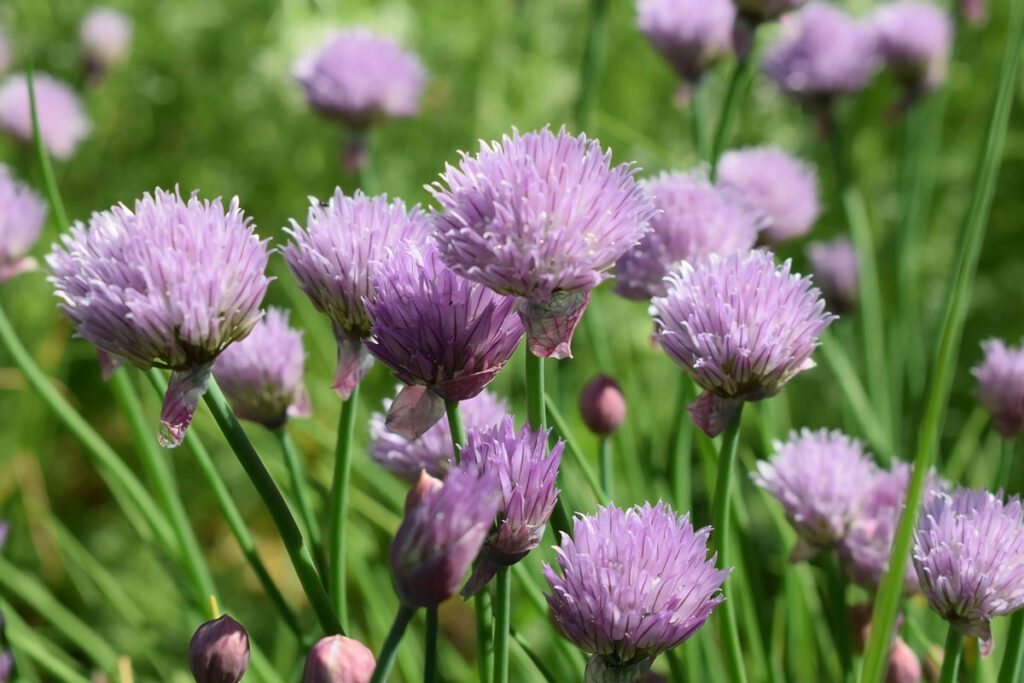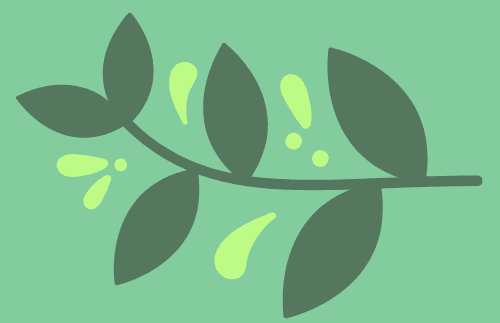Last updated on October 23rd, 2023 at 08:32 pm
Is there a trick how my herbs from the garden or from the balcony form particularly delicious aroma? How the location, storage and cooking time affects the taste of your herbs and what tricks you can use to get the best flavor out of your herb garden, that and more, you will learn in this article from the Botany Guide Herbs Special.
Fresh smelling herbs add the right spice to food. The higher the quality of the kitchen herbs used, the more unique the taste experience will be later on. But what makes high-quality herbs so aromatic? And how do oregano, basil & Co. from your own herb garden succeed in forming an equally special aroma?
In fact, several factors are decisive for the aroma formation of herbs. In addition to the variety, the location, the right time for harvesting and storage play an important role. The right timing in cooking, when and if the aromatic herbs are put into the cooking pot, also has an influence on how well they develop their fine aroma.
Contents
Variety of herbs: The choice of variety
The common kitchen herbs such as basil, parsley & Co. are known to everyone. But in the meantime, there are many varieties of all these herbs. Not all of them have the same quality. Often there are big differences in taste and intensity of flavors. When choosing the particular variety, it is therefore best to take a scent sample before buying the herbs, whether the plants actually smell as wonderfully intense as expected. So that the favorite varieties also develop their full aroma in the garden and later in the food, there are, however, a few more points to consider.
The location plays an important role for the aroma of herbs.
Most herbs are very frugal, easy to care for and love sunny places. However, they only develop their full aroma if they grow in the ideal location, because here too there are differences depending on the type of herb. Herbs that like a lot of sun usually prefer dry and nutrient-poor soils. It’s a different story for culinary herbs that prefer to grow in partial shade or shade. They usually require more water and nutrients.
If you have the option, it’s best to grow your herbs in the garden, on the patio or on the balcony. Kitchen herbs often decorate the windowsill, but they are less suitable as houseplants. Indoors, they do not get enough light and do not thrive well under these growing conditions. As soon as winter is over, frost-sensitive kitchen herbs should therefore be brought out into the fresh air again in spring.

Herbs for partial shade
These herbs require moist, nutrient-rich soil
Parsley, chives, chervil, borage, garden cress, lovage, lemon balm, peppermint, basil, tall sorrel.
Herbs for sunny places
These herbs thrive in dry and nutrient-poor soils
Rue, tarragon, common mugwort, curry bush, lavender, rosemary, marjoram, thyme
(Oregano and sage like it sunny and dry but nutrient-rich)
Harvesting herbs: the right time is important
Herbs smell and taste most aromatic when they are just before flowering. During and after flowering, they lose much of their aroma, as the plant invests all its energy in forming seeds. If you are going to harvest herbs, you should set out with a basket or cloth bag early in the morning. From then on, the herbs dry from the morning dew and can be harvested. If herbs are harvested at the optimal time, the more aromatic dry herbs are obtained during the subsequent preservation or drying.
Drying and storing herbs properly
A simple and gentle way to preserve and store herbs is to air dry them. A rubber band is used to tie the freshly harvested herbs together. Then hang the small bundles of herbs upside down with some twine to let them air dry at room temperature. During this process, the room should be well ventilated. After three to four days, the herbs should be dried. If the drying takes longer, mold can form more easily. However, not all types of herbs are suitable for drying, some would even lose their aroma. Here is an overview of which culinary herbs are suitable for drying.
Which herbs can be dried?
Savory, curry herb, dill, tarragon, fennel, chamomile, caraway, lavender, marjoram, mint, oregano, peppermint, rosemary, sage, chives, thyme, hyssop.
What is the shelf life of dried herbs?
Dried herbs have a long shelf life and, as long as they are stored in a dry place, they cannot go bad. Only the aroma decreases a bit with time and does not taste as intense. Therefore, it is recommended to replace the dried herbs with fresh ones every one to three years.
Timing in cooking – Which herbs can be cooked with?
In addition to the optimal harvest time, drying and storage, the timing when cooking or seasoning the food also plays a decisive role in whether the herbs develop their full flavor. If the herbs are added to the cooking pot too early or too late, they either taste only half as intense or even lose their aroma completely in the heat. Some kitchen herbs are so sensitive that it is better not to cook them at all and only add them to the finished meal.
In general, herbs with firm robust leaves and of which one uses whole branches such as rosemary, sage or thyme are usually cooked along. These culinary herbs are usually added at the beginning of the cooking time, as they only develop their full aroma through the heat and longer cooking time.
Herbs with delicate and fine leaves such as basil, parsley or chives lose all their aromas when heated and are therefore not cooked with the food and, depending on the type of herb, are added to the food just before the end of cooking. In order for the aroma to develop even better during cooking or in the food, you can rub the dried herbs between your fingers before sprinkling them into the pot or food. This way, the aromatic herbs release their delicate fragrant flavors even more easily.
The perfect timing for seasoning with fresh herbs
If possible, add mugwort at the beginning, as it will not release its full aroma until cooked or baked and roasted, both fresh and dried.
Savory can be cooked fresh or dried and retains its aroma.
Tarragon develops its full aroma during cooking and is best added to the pot right away.
Caraway is suitable for longer cooking and cooking times, under which it develops its essential oils.
Oregano develops its full aroma only during cooking. Since the herb does not lose its essential oils even when warm, it should be cooked for at least 15 minutes.
Rosemary also adds its spicy aroma to dishes only after a longer cooking or simmering time. To reduce the taste of the bitter substances, you can also add the rosemary leaves about 10 minutes before the end of the cooking time.
Sage releases its aromas only with longer cooking time. It is used, for example, fried with fat or cooked in many dishes.
Thyme can be cooked longer, as its aroma comes out better this way.
These herbs should not be cooked with:
Basil does not tolerate the heat of cooking. It not only loses its aroma, but also tastes bitter when it burns. It should therefore only be cooked at mild temperatures and only added to the dish in the last 5 – 10 minutes.
Wild garlic contains sulfur compounds that are destroyed by heating, which causes it to lose its flavor when cooked. Therefore, the crushed wild garlic leaves are mixed into the dishes at the end of the preparation.
Borage is heated in the pot only briefly at the end of cooking, otherwise eaten raw.
Dill loses its great aroma when heated, so always season with it after cooking.
Chervil is very sensitive to heat and loses its delicate flavors during long cooking times. It is therefore added just before serving.
Coriander should only be sprinkled fresh as cut leaves over the food.
Cress must not be cooked or heated, as the tender leaves collapse and lose all their aromatic substances. In addition, the cress quickly becomes bitter.
Add marjoram to the food just before the end of the cooking time to preserve its aroma.
Mint is never cooked with the food, because it loses its essential oils very quickly when exposed to heat.
Dried parsley can be added to the cooking pot for a few minutes just before the end of cooking. Fresh parsley leaves, on the other hand, should not be used in cooking and should only be sprinkled over finished dishes.
Chives are not suitable for cooking and should only be eaten raw.
Never heat lemon balm, otherwise all the flavors are gone.


